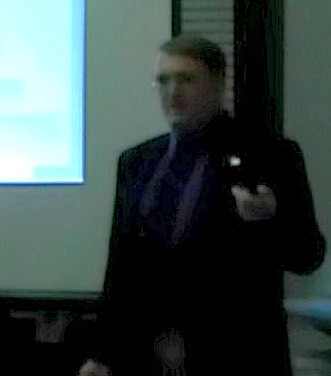 Send to Kindle
Send to KindlePeter Walsh is an organizational expert with many books, radio, and television appearances to his credit. On his TLC show he goes to the home of a family who can’t seem to straighten up their house or throw anything away. Are there really people who live like that? Apparently so, but that’s not the point. Walsh arrives with his crew, and in a few short minutes (in TV time) has sorted, arranged, and redecorated, resulting in a pristine house and a family changed forever; we hope. All very impressive. But there’s something else that comes through if you listen carefully to what he says in the show and in interviews: it isn’t complicated!
Every time I’ve seen Walsh, he is espousing a set of principles that are pretty straight forward and not difficult to grasp. I congratulate him on his success in not escalating to ever more complex theories and models to sell more books. I wish leadership training and writing would follow the same model.
I once received a rejection from a magazine wherein the editor said my article idea was really good and well thought out, but didn’t present anything new. Now I’m not going to cry over a rejection, it happens. But his reasoning really took me by surprise. Should I be striving to present new information? Is there new information in the field of leadership? There are thousands of new books every year. Do they provide new information? More importantly, do leaders, especially new leaders, need new information?
Of course they do! But what is old stuff to those of us who have studied leadership is brand new information to those who haven’t, and the one thing they don’t need is for some expert to make it more complex just to sell a new book.
Before you accuse me of being anti-publishing, let me assure you I love books and articles on leadership. The ones I find most valuable are those which approach a leadership issue from the aspect of personal experience or serious research. I’ve never really found much new in that sort of writing. Instead, these books and articles present the same old information from a point of view I might not have considered, or maybe details a situation I hadn’t experienced but might in the future. The Carrot Principle by Adrian Gostick and Chester Elton serves as a good example. I did not find the premis of this book particularly new. The book is on my shelf though because it presents a basic leadership concept with significant research and some very good approaches, some of which I hadn’t considered.
I’ve come to believe that leadership is a very complex simple thing. That’s because the basic tenets of leadership are pretty simple but executing them effectively can be very complex. I compare it to the game of chess. The basic moves and rules are fairly simple but the game itself is extremely complex with a seemingly infinite number of possibilities that change significantly with every move. But, no matter what strategy the players adopt, or how complex the game becomes the rules are still simple, and they don’t change.
It would be silly for me to say there is nothing new in leadership. There will always be new approaches and innovative thinking and I certainly encourage that. But, when we’re presenting leadership to people who are new to the art, we need to always remember that the basic rules are simple and when we try to make them complex, we lose our effectiveness.



